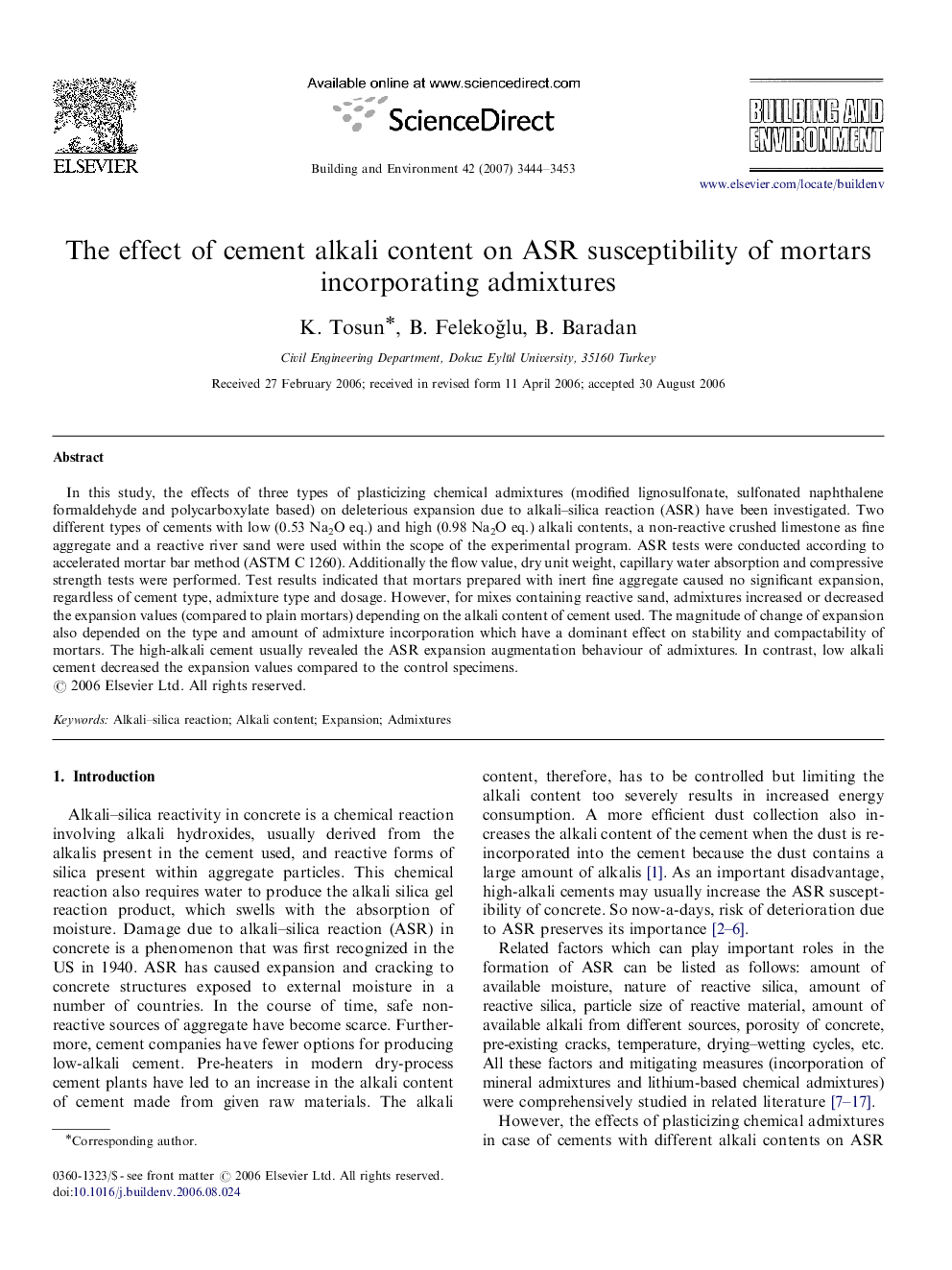| Article ID | Journal | Published Year | Pages | File Type |
|---|---|---|---|---|
| 250006 | Building and Environment | 2007 | 10 Pages |
In this study, the effects of three types of plasticizing chemical admixtures (modified lignosulfonate, sulfonated naphthalene formaldehyde and polycarboxylate based) on deleterious expansion due to alkali–silica reaction (ASR) have been investigated. Two different types of cements with low (0.53 Na2O eq.) and high (0.98 Na2O eq.) alkali contents, a non-reactive crushed limestone as fine aggregate and a reactive river sand were used within the scope of the experimental program. ASR tests were conducted according to accelerated mortar bar method (ASTM C 1260). Additionally the flow value, dry unit weight, capillary water absorption and compressive strength tests were performed. Test results indicated that mortars prepared with inert fine aggregate caused no significant expansion, regardless of cement type, admixture type and dosage. However, for mixes containing reactive sand, admixtures increased or decreased the expansion values (compared to plain mortars) depending on the alkali content of cement used. The magnitude of change of expansion also depended on the type and amount of admixture incorporation which have a dominant effect on stability and compactability of mortars. The high-alkali cement usually revealed the ASR expansion augmentation behaviour of admixtures. In contrast, low alkali cement decreased the expansion values compared to the control specimens.
